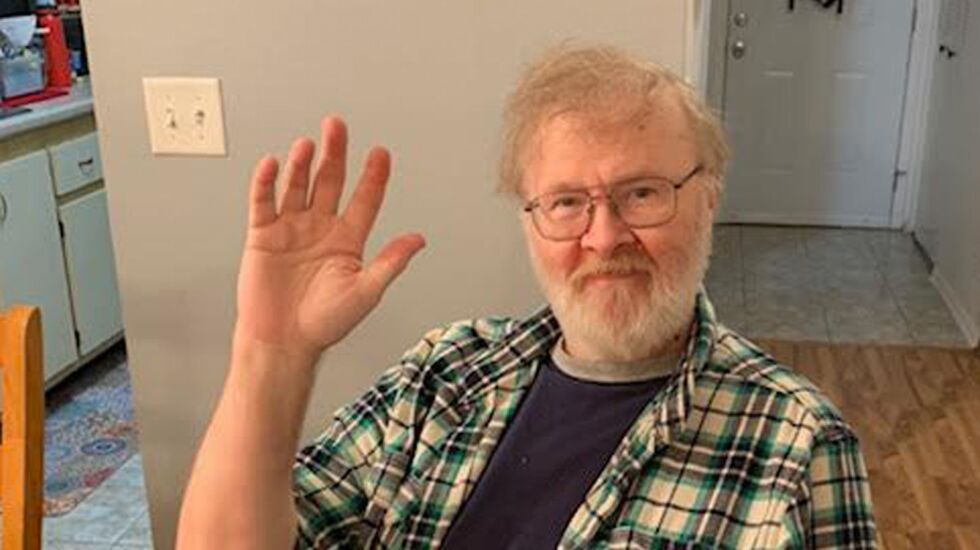
As someone who became a knowledgeable legal investigator after witnessing a miscarriage of justice, Randy Garrett unearthed information that helped overturn the death row convictions of two men in the 1983 killing of 10-year-old Jeanine Nicarico of Naperville and led to charges being dropped against a third man.
Several defense lawyers credited the encyclopedic knowledge Mr. Garrett acquired about the case with helping ultimately bring the truth to light. Three Aurora men had been charged: Stephen Buckley, Rolando Cruz and Alejandro Hernandez.
”Randy’s dedication to justice for Cruz, Hernandez and Buckley was something to behold,” said Rob Warden, former executive director of the Center on Wrongful Convictions at the Northwestern University School of Law. “Once he saw what was happening, he couldn’t let go. It was inspirational.”
Mr. Garrett died Monday in Florida of congestive heart failure. He was 64.
In 1985, he was a member of a Villa Park group called Stop Child Abduction Now when he attended the first of five trials in the girl’s killing.
The prosecutor’s “opening statement caught my attention,” Mr. Garrett told the Chicago Sun-Times in 1995. “It seemed like they didn’t know what actually happened. They had no idea how many people were involved. They didn’t know the motive. They didn’t know where the car went or where the murder weapon went. They didn’t know why witnesses saw only one person … And they didn’t know who actually murdered her.”
Information he unearthed from interviewing a large number of witnesses helped lead to charges being dropped against Buckley and to Cruz and Hernandez being freed from death row.
Another man, Brian Dugan, eventually confessed to committing the crime and is serving a life sentence.
“Randy’s picture belongs in the dictionary next to the term ‘dogged journalist,’ “ said author and lawyer Scott Turow, who handled Hernandez’s second appeal and got him a new trial. “He was tireless and inexorable in his commitment to unearth the truth. And he led the brigade of determined journalists who played an essential role in freeing Alex Hernandez and Rolando Cruz.”
Before the third trial for Cruz — whose first two trials ended in conviction — Garrett noticed that prosecutors had switched the day of a critical phone call prosecutors said was by a sheriff’s officer. That led to testimony by another sheriff’s officer, who supposedly had received the call, that he actually was out of town and that the call could not have been made.
On hearing that, the judge cut the trial short and acquitted Cruz on the spot.
Subsequently, charges against Hernandez, who had two convictions overturned and was facing a third trial, were dropped.
Buckley’s case was dropped earlier, before what would have been his second trial, after a hung jury in his first.
“He did all that work out of the goodness of his heart, without ever expecting a dime for it,” John Hanlon, then an assistant defender in the Illinois appellate defender’s office, said of Mr. Garrett in a Sun-Times interview in 1995. Hanlon helped win new trials for Cruz and Hernandez in 1988.
Mr. Garrett continued to research the case and later co-authored a 1998 book about it, “Victims of Justice” (Avon), with Sun-Times reporter Thomas Frisbie. An expanded 2005 edition, ‘’Victims of Justice Revisited,” was published by Northwestern University Press.
He also wrote about legal matters for the Chicago Lawyer and Naperville Sun and did legal research on other cases.
“Randy was an author, investigator and a wonderful soul who devoted many hours seeking justice for the sake of justice itself,” said Gary Johnson, who was a defense lawyer for Buckley and later Kane County state’s attorney. “I know there are at least three innocent men who owe their freedom and reputations to Randy.”
As a child, Mr. Garrett had a quick mind for mathematics and sports statistics and played in junior chess competitions. At about 10, he played against a grandmaster, who, as a test, intentionally started replaying a historical chess match, according to Mark Garrett, Mr. Garrett’s brother. He said Mr. Garrett recognized the game and won by following the original victor’s moves.
Mr. Garrett also was an ardent reader.
”Books were his life,” Mark Garrett said. “He had a collection of thousands of books.”
Mr. Garrett grew up in Villa Park, where he attended Willowbrook High School. He later attended classes at the former George Williams College in Downers Grove, now a campus of Aurora University. After college, he worked nights as a mental health counselor at Good Samaritan and then Elmhurst hospitals.
In 1995, he moved to Florida, where he worked for the hospital Broward Health North until retiring.
Mr. Garrett is also survived by his sister Cindy Panfil, four nieces and two nephews.
A celebration of life service is being planned.







